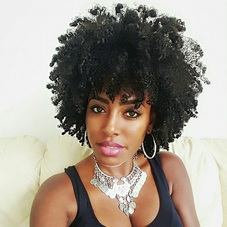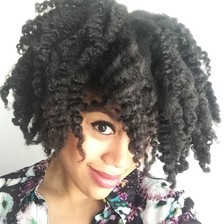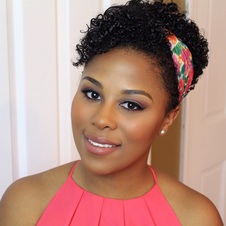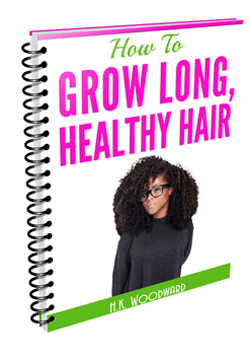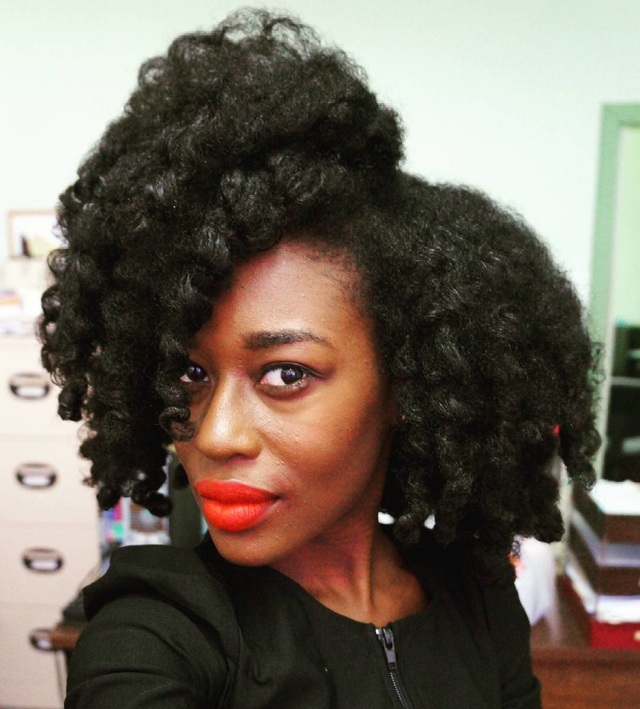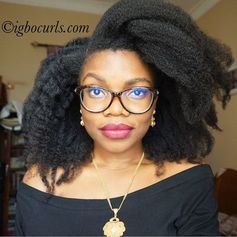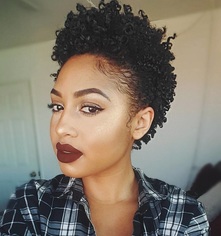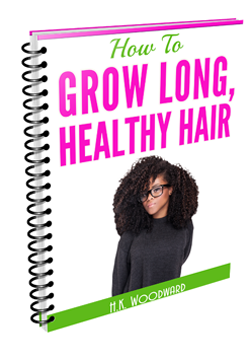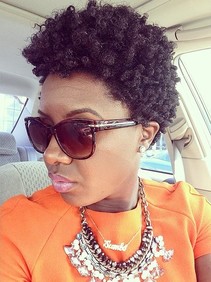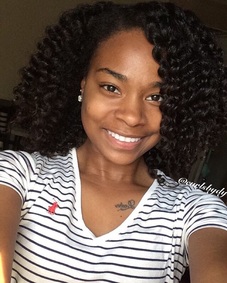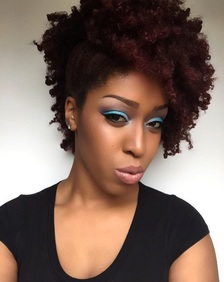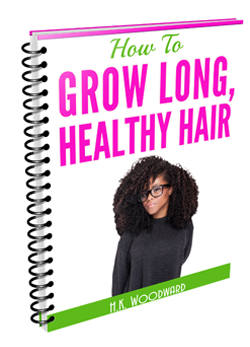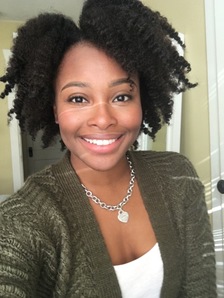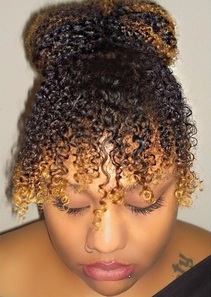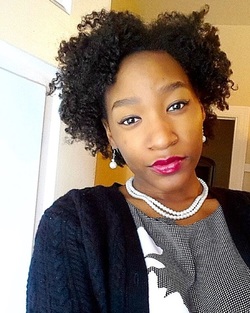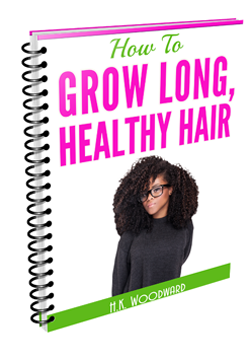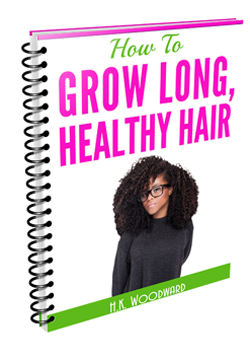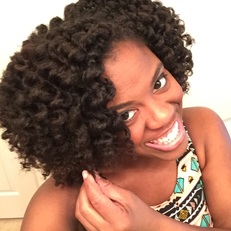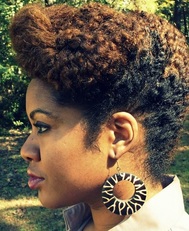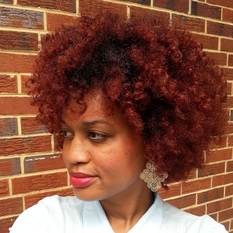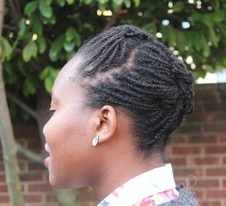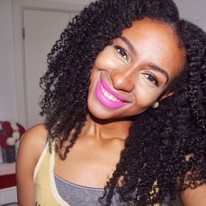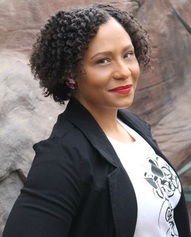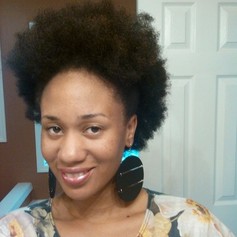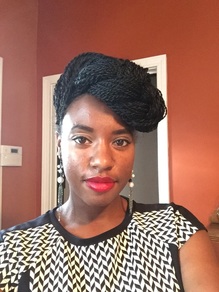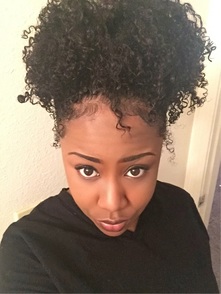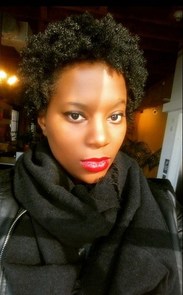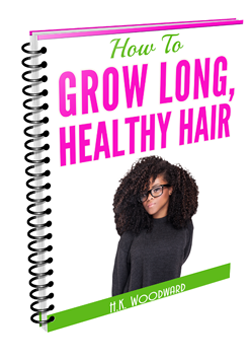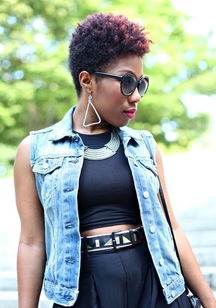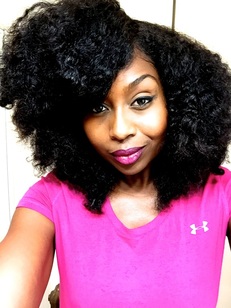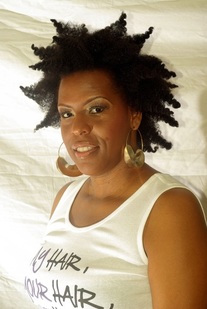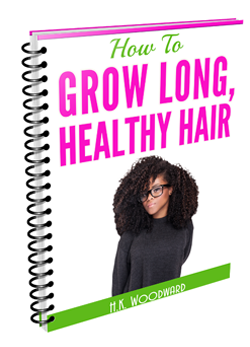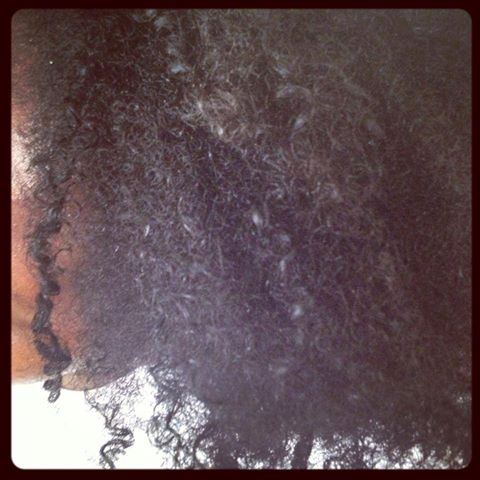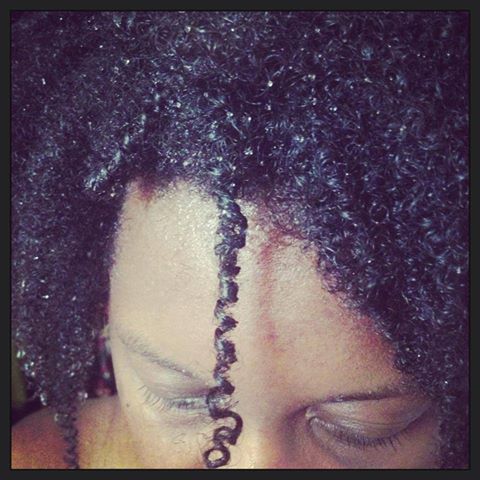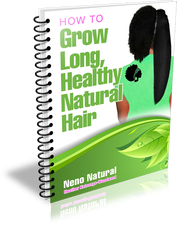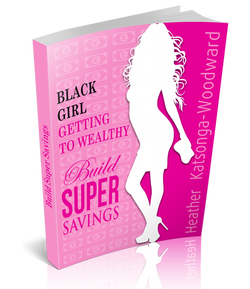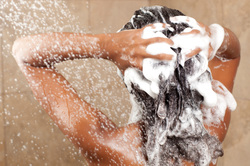
Sulfates are a detergent or if you want to use the fancy term, they are a "surfactant". They are regularly used in the formulation of shampoo.
If you have very oily hair or if your hair has a massive amount of product build up, they are okay to use. Almost every shampoo that is commercially available, however, contains sulfate. "Greasy" or oily hair is a common problem for white folk but black people tend to have the opposite problem, dry hair, so the omnipresence of sulfate containing shampoos can present a bit of a challenge! Why are sulfates bad for natural black hair?
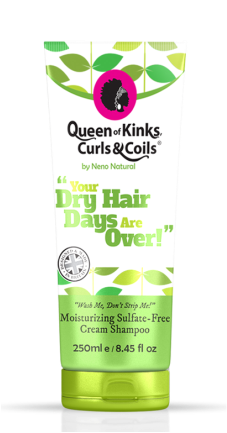
If you go for a sulfate-free shampoo you will be better able to retain moisture and this in itself will promote better growth of hair and better length retention.
That said, not all sulfate-free shampoos are made equal. Some manufacturers combine so many surfactants into one shampoo making it more harsh than a sulfate-containing one - sigh. Read this for tips on how to shop for a shampoo. Carol's Daughter Black Vanilla Moisture & Shine Sulfate Free Shampoo For Dry Hair and Dull Hair, with Aloe and Rose, is designed to clean your hair without stripping it of all the amazing natural oils.
Natural hair doesn't "like" being handled when it's dry or in fact even when it's very wet. Before detangling your hair you should "plasticize" to soften it and make detangling easier.
What is a plasticizer? It's anything that softens hair and makes it easier to detangle and comb. What products can be used for plasticizing? Water, leave-in-conditioner, a creamy moisturiser, oil and even a little rinse-out conditioner. Basically, anything that makes the hair more slippy. My hair is quite thick and course so I find that thick, creamy moisturisers and leave-in conditioners work best for plasticizing my hair. I usually also follow with an oil to seal. For thin hair you might prefer to use just the oil or a very loose conditioner. How much plasticizer should be added to hair? If you're about to wash your hair, then you can add as much as you want. However, if you just want to detangle and style your hair for the day then use just a little bit. I probably use about a tablespoon's worth given my hair thickness. If your hair's thin you might prefer to use less product so that your hair isn't weighed down. Any other tricks? Why yes, when I am plasticizing my hair for styling rather than before my weekly wash I cover my hair in a shower cap whilst I shower and get ready as it helps my hair soften and makes it far easier to handle.
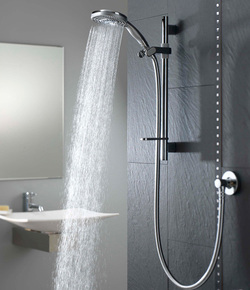
Washing your hair under a shower is highly convenient for many because tangling can be minimised.
Keeping hair strands dangling dowanwards prevents the tangling that occurs when you lean over a bathtub then stand back up. In addition, you can have a shower at the same. One problem. Black hair can be very delicate so if your shower produces water at a very high pressure delicate hairs will break. Have you ever seen dirty walls and garden floors being cleaned using a strong jet of water? That shows just how powerful water under pressure can be. If your shower's pressure can be adjusted, lower it a little bit when your head is under the shower just to make sure you don't incur unnecessary breakage.
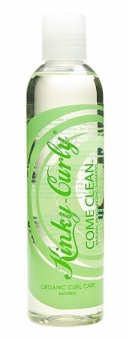
If you walk into your local hair shop you will probably find three main types of shampoo none of which are suitable for fragile black hair.
You see, for the most part shampoos are designed by people with type 1 or 2 hair (typically Caucasians and Asians) for their type of hair. Their key problem is greasy hair, very curly hair's key problem is dry hair - you cannot solve these two problems with the same product! The main function of shampoo is to clean hair. It is a detergent. The difference between shampoo different shampoos is the strength of the detergent. The key types of shampoo: 1. Regular, commercial shampoo
2. Clarifying shampoo
3. Chelating shampoos
The better shampoos for black hair
The Queen of Kinks conditioner can be used for full routine wash, that is, detangle + shampoo + deep condition + moisturize with a different product application at each stage.
Alternatively, if you’re pressed for time or if your hair isn’t that dirty you can detangle your hair, twist it to section, let it sit then rinse, moisturize and go in one easy step. Because the detangler and conditioner are one product you save on time. It’s super convenient as you will see in the below video. Essentially, you are co-washing and deep conditioning at the same time: 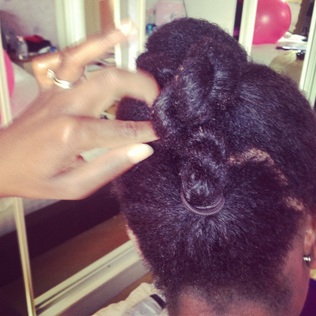
Co-washing simply refers to washing your hair with conditioner. When you co-wash your hair you do not use any shampoo at all.
Deep conditioner is a specific type of conditioner. It is very rich in ingredients that nourish hair. Deep conditioners are not designed for daily use. The five main types of conditioner are:
Not all conditioners are made equal! Some are designed for daily use, others for weekly use and yet others for less than weekly use. If you wash your hair more than once a week then you need to keep a deep conditioner for use once a week and an instant conditioner or cream-rinse conditioner to use in between. 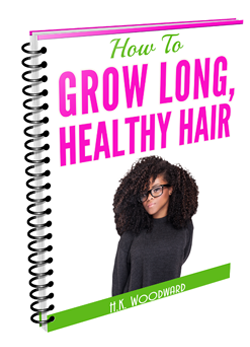
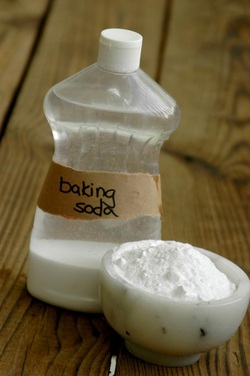
The Science of Black Hair by Audrey Davis-Sivasothy argues that baking soda is generally too abrasive to be used as a regular shampoo for natural black hair.
If you have thin hair fibres, I wouldn't go near it. However, if you have thick hair and lots of build up a baking soda shampoo rinse may be just the perfect solution for you instead of buying a clarifying shampoo. The recipe is in: how to make a baking soda shampoo rinse. pH and baking soda Baking soda has a pH of 9. It's weakly alkaline. Hair has a pH of 4.0 - 5.5 so if you use this formula you have to follow it with a deep condition or at a minimum an ACV rinse or a lemon rinse. Conditioners, ACV and lemon are all acidic and will help to rebalance the pH of your hair as well as close up your hair cuticle which open up under alkaline conditions. If you just do a baking soda shampoo rinse without following it with something acidic your hair cuticle won't close, the pH will remain out of balance and this could lead to scalp conditions including dandruff and itchiness plus your hair will look dull, instead of shiny. Have I ever tried baking soda? No, whilst I don't want to say I never will, I am not interested in trying it mostly because of the pH. I also have a lot of homemade hair recipes which I prefer to use instead. 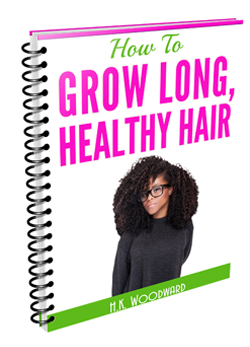
Get your FREE ebook on How To Grow Long, Healthy Natural Kinky or Curly Hair. You might also like: Baking Soda Shampoo To Clarify Natural Hair 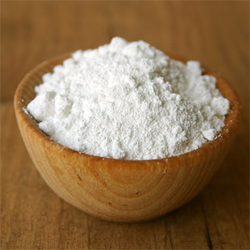
The Science of Black Hair by Audrey Davis-Sivasothy argues that baking soda is generally too abrasive to be used as a regular shampoo for natural black hair.
However, if you have lots of build up a baking soda shampoo may be just the perfect solution for you instead of buying a clarifying shampoo. Any alternative to baking soda? Another alternative to the clarifying shampoo is a regular sulfate-containing shampoo. Keep in mind that sulfates are not harmful to health or hair they just too effective at cleaning so they tend to strip hair of good oils. If you have lots of product build-up, however, the cleaning power of a sulfate becomes appropriate. 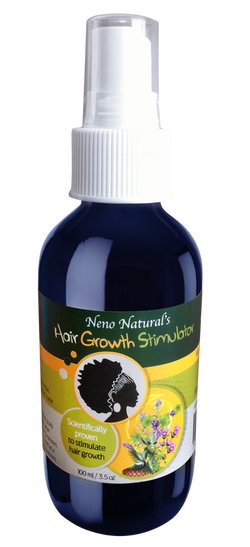
Baking Soda Shampoo Formula
You can use this formula after a regular shampooing or in the place of it. Ingredients
Method: Mix the two ingredients. Stir to dissolve. Application: Apply to scalp and hair. Massage in for maximum effect. Rinse out then follow with a conditioner. Storage: Don't store. Use it all in one go. What is the pH of baking soda? 9. It's weakly alkaline. Hair has a pH of 4.0 - 5.5 so if you use this formula you have to follow with an ACV rinse or a lemon rinse. I would only use this recipe if you have lots of product build up. If you have used baking soda before, we'd love to know the results that you got. 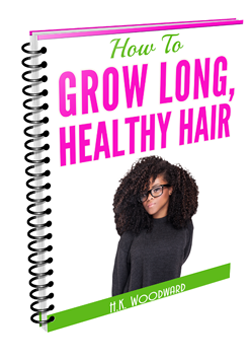
Get your FREE ebook on How To Grow Long, Healthy Natural Kinky or Curly Hair. Other references: Baking Soda for Hair 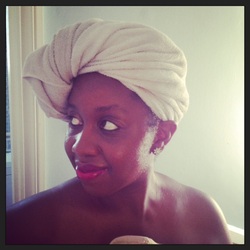
First things first, what on earth is a microfiber towel?
Microfiber (or microfiber here in Britain) is a synthetic fiber that is finer than one denier - this diameter is smaller than a strand of silk. A microfiber towel is less fluffy than a regular cotton towel but is actually much more ideal for drying hair because:
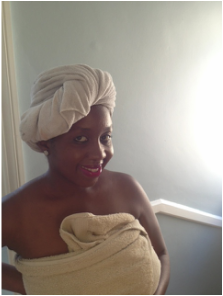
How do you use a microfiber towel?
After washing my hair I give it a gentle squeeze to get rid of the dripping and then I wrap the microfiber towel over my head and let it get to work. You don't need to rub or scrunch at all. A gentle pat over the surface is enough. Where can you get a microfiber towel? I got links to the top rated microfiber towels on Amazon.com and .co.uk below. I have Mimi's Diva dryer. It's what I have on my head in the photos.
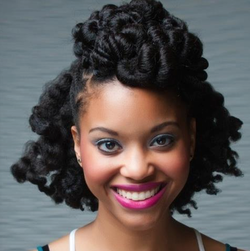
Washing your hair once a week is enough.
Type 4 (kinky and curly) hair doesn't get greasy as badly and as quickly as straight hair does for the very reason that it is kinky or curly. Why greasiness is not an issue Sebum, the natural oil produced by the scalp struggles to move up the kinks, curls and coils of type 4 hair. This means that dryness is much more of a problem for curly and kinky haired types than greasy hair and overwashing just exacerbates the problem. Tangling is a big issue The washing process is prime time for hair to get tangled and knotted.
But I go to the gym a lot? Personally my hair doesn't take on a stench when I exercise even when I sweat heavily so I just stick to my weekly wash. I frequently make one of my workout days coincide with my wash routine. Of course, your hair's moisture level, tendency to get knots and tangles and sweat pattern will be different to mine so you need to find the right wash-regularity for you.
|
I now blog about wealth creation - so if you have any money questions meet me there, you can do all sorts of cool things like leave me a voicemail.
By Heather Katsonga-Woodward
I was a natural hair blogger and mixtress living between London & Chicago from 2012 to 2017. I always thought I was 4C but some say 4B; images below - you decide! Heather xx Categories
All
Archives
November 2016
|

